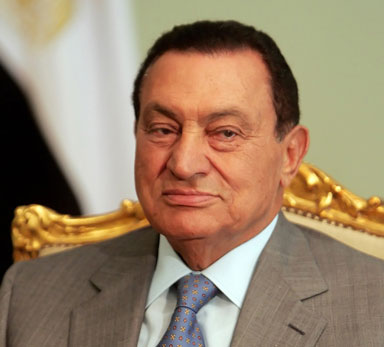When Tunisia's revolution began in approximately mid-December, hardly anyone knew about it. Only in retrospect can we recognize Mohamed Bouazizi's martyr death as the catalyst that tore apart the Middle East. Perhaps it's because Tunisia is smaller and the common world hardly saw it coming (in hindsight, everyone will say that they saw it coming, they predicted mass unrest and upheaval in these countries, but in all actuality, Egypt and Tunisia were a far cry from being hot topics before the end of January). Perhaps its because the United States does not have a long history of interaction with Tunisia or perhaps it is because it was simply the first of its kind. We did not know what domino effect the Tunisian uprise would have and so we ignored it because it did not affect us.
Then Egypt came along and the world silenced itself to listen to what these people had to say. Why did we pay attention? We certainly did not at first, but after about a week of protests and suddenly every single cover story of the New York Times is about Egypt, about president Mubarak, about the Government, about what the US had to say concerning Egypt. CNN had a continuous stream of footage from Tahir square and we had no choice but to know about Egypt. We had to listen.
And we wanted to be a part of it. Youtube linked to Al Jeezera (broadcasts from the Middle East). An invitation to join in the cause of human anger circulated Facebook (let's face it... though the invite increased awareness, who had the audacity to think that the average teenage facebook user could comprehend, much less empathize with the revolutions in Egypt? No, they "attended" that event because everyone else was doing it and because Egypt was a hot topic in the news). We were swept up in the euphoria of Egyptians taking back their country.
Today, the cover of the New York Times Cover features Obama and the US Budget, a piece on Bernie Madoff, an article about how the English are staying fat despite the fact that they said they wouldn't, and a call to turn Egypt's internet back on.
Currently, there are three additional countries revolting and the list grows longer every single day. Iran, Bahrain and Yemen were among the first to pick up their signs after Mubarak resigned and Egypt rejoiced. But Libya and Iraq were added just today. Yet, where are the 'breaking news' reports on any of these countries? Where are the page 1 NYT reports? The tweets? The Facebook statuses? the blog posts?
Where has our conviction for human civility and equality gone? Did we lose our fire and passion for fair governments the same way we dropped last semester's obsession with freshman quarterback Jake Heaps? Quietly and quickly.
Suddenly it became passé to revolt. Everyone was doing it, so it simply was not popular anymore.
This is not the newest winter season coat, this is a nation of people standing up for their rights. Governments all over the world are trembling in their boots, and its about time.
Yet, hardly anyone cares anymore because protests, death and revolutions are old news. We've seen one and we simply do not have the capacity, the patience, nor the attention span for another.
What are the implications of the media's lack of coverage and the American people's lack of interest? Will these people be silenced because no one was willing to listen?

